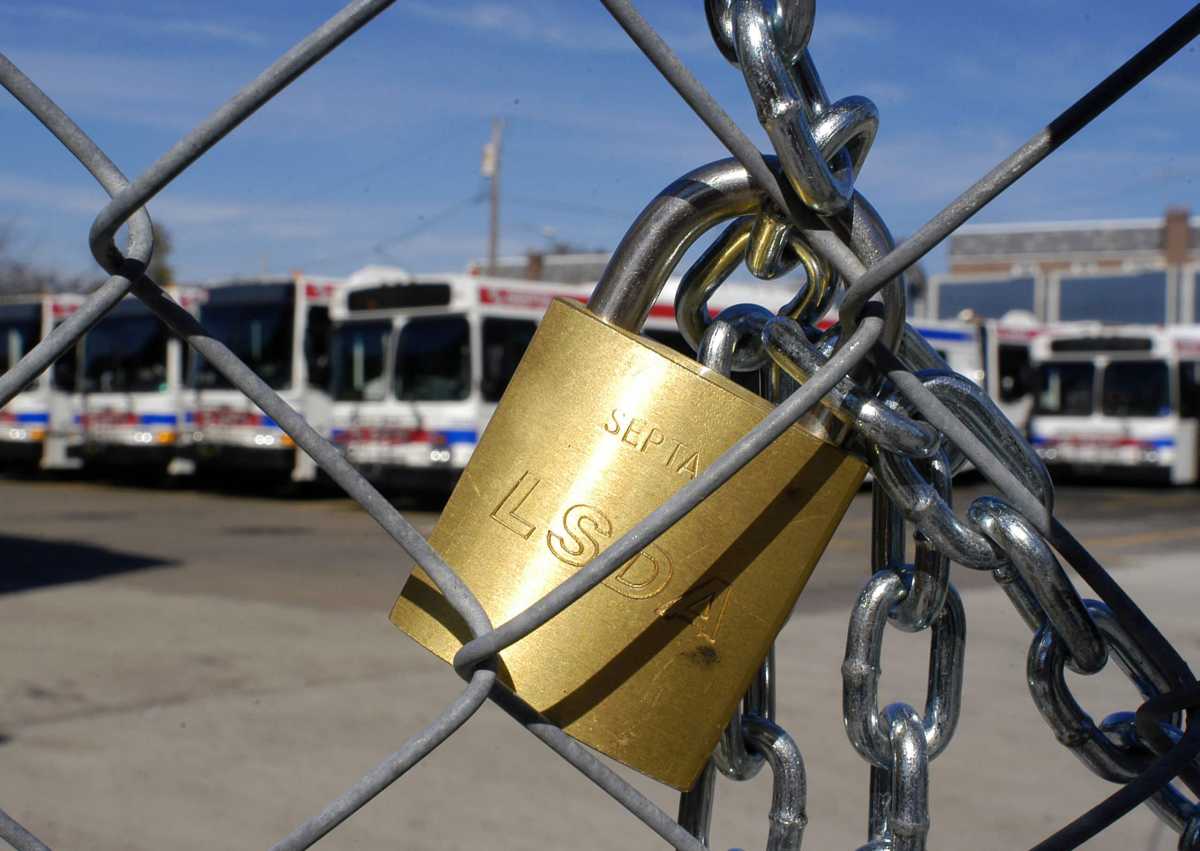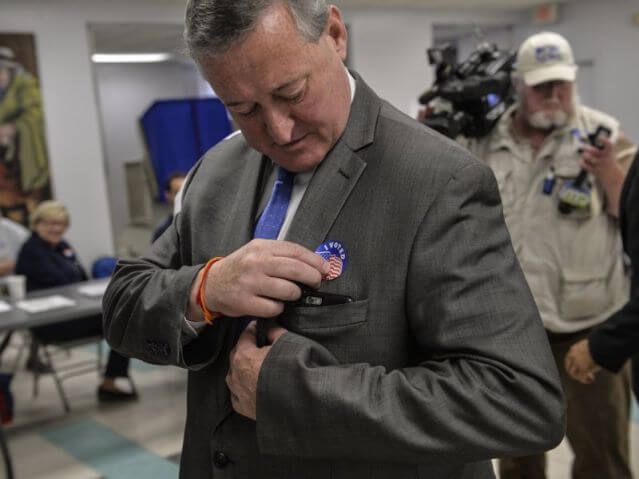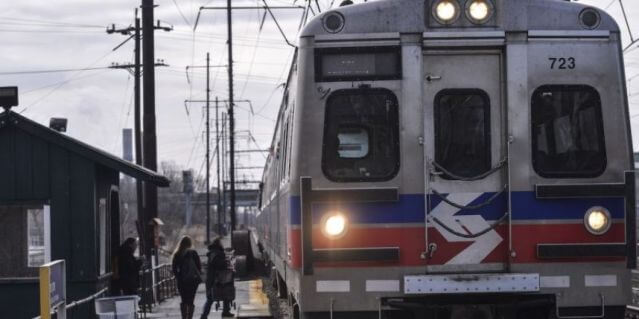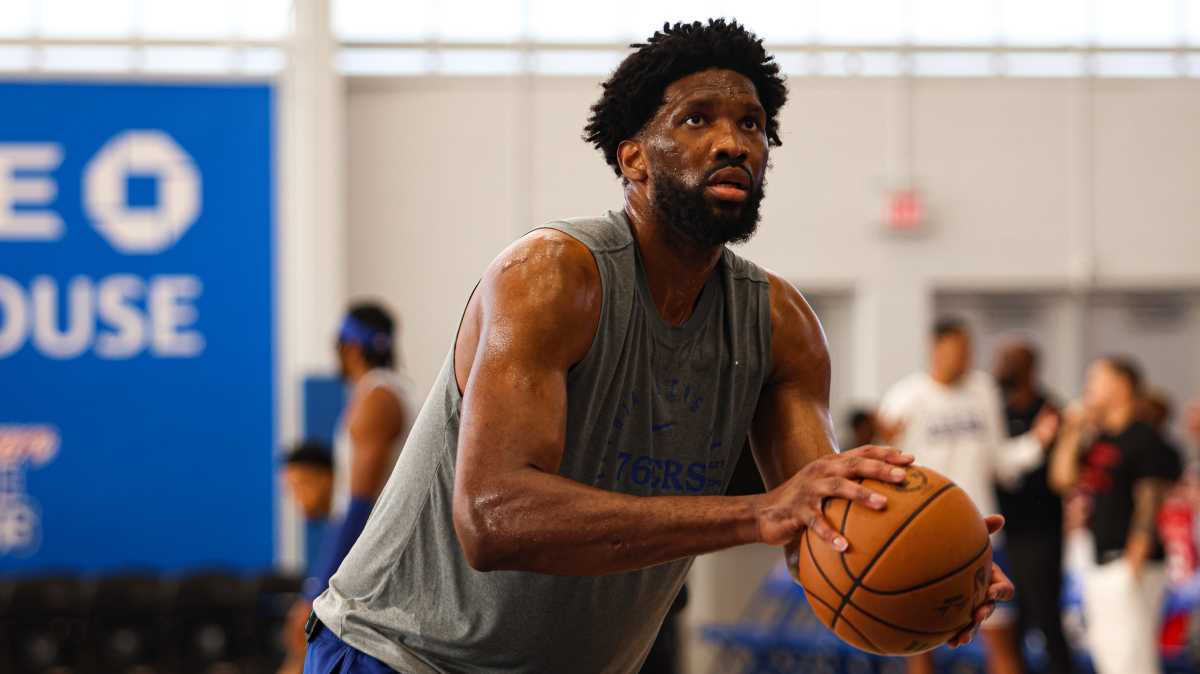Rochelle Womack had a long day.
Standing outside the Clothespin around 4 p.m. Thursday, Womack had just ended her shift as a security officer in Center City and was waiting for a company-provided shuttle for her long trek back to Delaware County. She woke up at 4 a.m., and didn’t expect to get home until after 7 p.m. “It’s a really long day. So that’s what’s really hard about SEPTA being on strike,” she said.
Womack is just one of thousands whose life has been flung into chaos since Tuesday, when SEPTA’s unionized workers walked off the job.
More than the struggle of her daily commute, though, the Yeadon woman fears how her travel ordeal will affect her on Election Day.
“Once I get home, I’m gonna have to drop my stuff off, go right to the polls and vote. I probably shouldn’t even go home, ‘cause that’s gonna make it harder for me.”
Crystal Smallwood, of Center City, has encountered a different problem. She’s currently residing at 13th and Pine streets, but is registered to vote in West Philly.
“I need [SEPTA] to get it together so I’m able to go vote,” said Smallwood, who has been mostly walking since the strike began. “Most I can do is call friends and see if someone can take me to go vote.” There are1,686 polling locations, mostly within walking distance to voters’ homes. It’s not entirely clear how many voters are will be affected by the SEPTA strike on Election Day, butreports say that is thought to be a small number. District Attorney Seth Williams said in a press conference Wednesday that generally people who will be affected by the strike on Election Day are those who get a ride to work. Williams encouraged anyone in that situation to cast their ballots before going to work. Polling places in the state are open from 7 a.m. to 8 p.m. A seemingly unconcerned Williams said anyone in line by 8 p.m. will be allowed to vote.
Still, the Democratic Party has been paying attention.
Congressman Bob Brady, a Philadelphia Democrat, has been mediating talks between the Transit Workers Union Local 234 and SEPTA. He said members of Hillary Clinton’s camp are worried.
“Corey Dukes had a little concern,” Bradytold the Philadelphia Inquirer, speaking about the director of Clinton’s Pennsylvania campaign. On the strike overlapping Election Day, Brady added “it’ll hurt.”
In a separate interview with 6ABC, Brady said his concern is with timing. “Everybody talks about the polling places, most of them are in walking distance, but if you go to work at 8 o’clock, you stop at 7 to vote. Now you’re going to work at 7 o’clock, you might not have time to vote. And who knows, coming home you might be late coming home. “I’m worried about that.”
Acknowledging how important this year’s election is, Womack also expressed concern.
“We don’t want Donald Trump to win,” she laughed, waiting outside the Centre Square building with a friend.
Even if the SEPTA strike spurred low voter turnout, it’s unlikely Clinton would get burned. Registered Democrats outnumber Republicans in the city seven to one. In the state’s April primary election, Clinton won 218,959 votes in Philly. Trump earned just more than 25,000, according to data from the Office of the Philadelphia City Commissioners. But Ed Rendell, former Philly mayor, Pennsylvania governorand Democratic National Committee chairman, says otherwise. In a radio show Wednesday, the partybigwigsaid effects of the strike on Nov. 8 could be a “real plus for Donald Trump.” He also suggested reclassifying TWU 234 to strip its union members of the right to strike.
In a statement released Tuesday, SEPTA said it’s hopeful an agreement is struck before Election Day. If that doesn’t happen, the transit authority would seek an injunction from the U.S. District Court to force striking union workers back on the job. But negotiations seem to be going south since union workers left their posts and began picketing. Metro reported Thursday thatSEPTA and TWU 234 are sparring publicly, blaming the other for the union’s walkout.
Voters worry about getting to polls during SEPTA strike

Getty Images



























